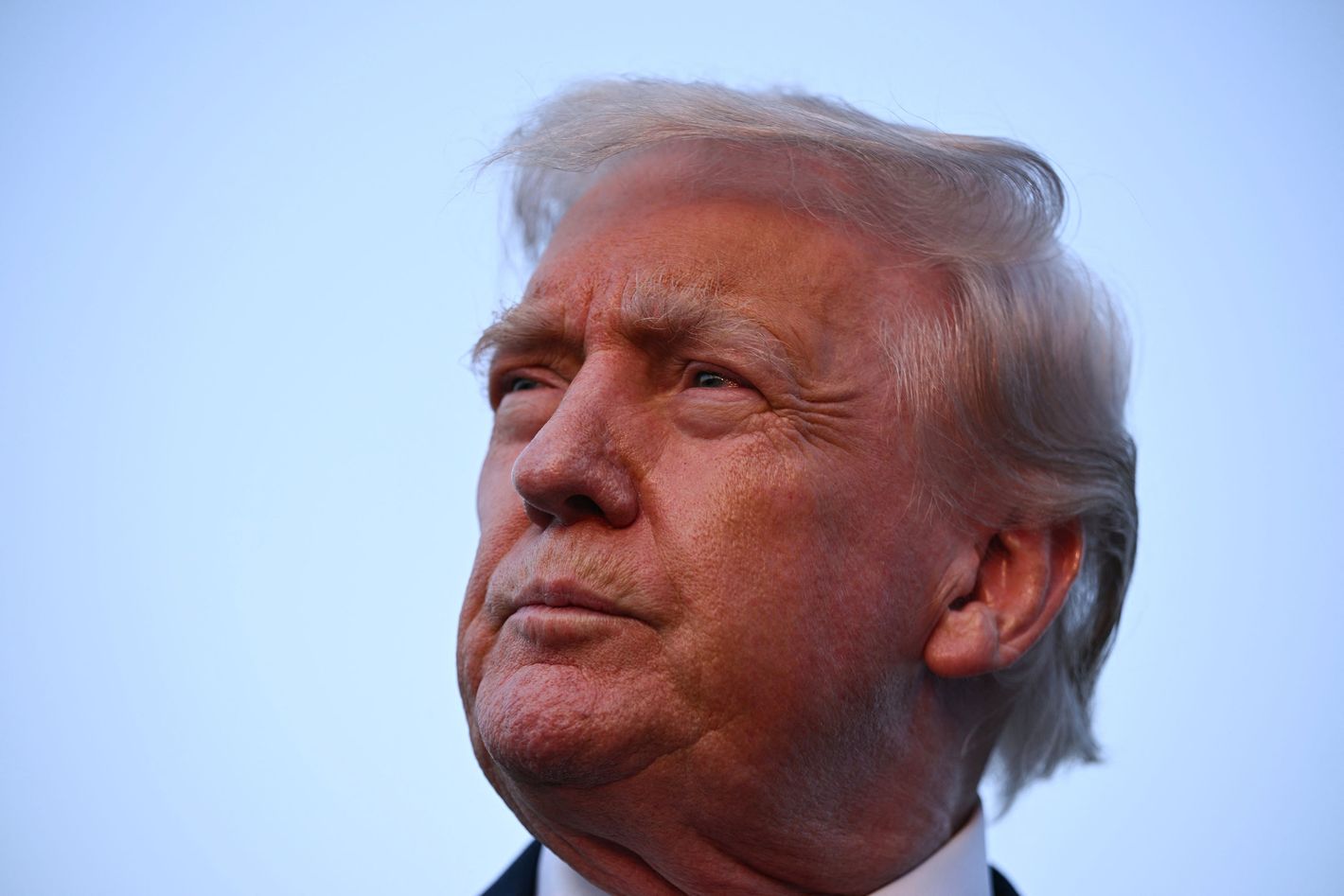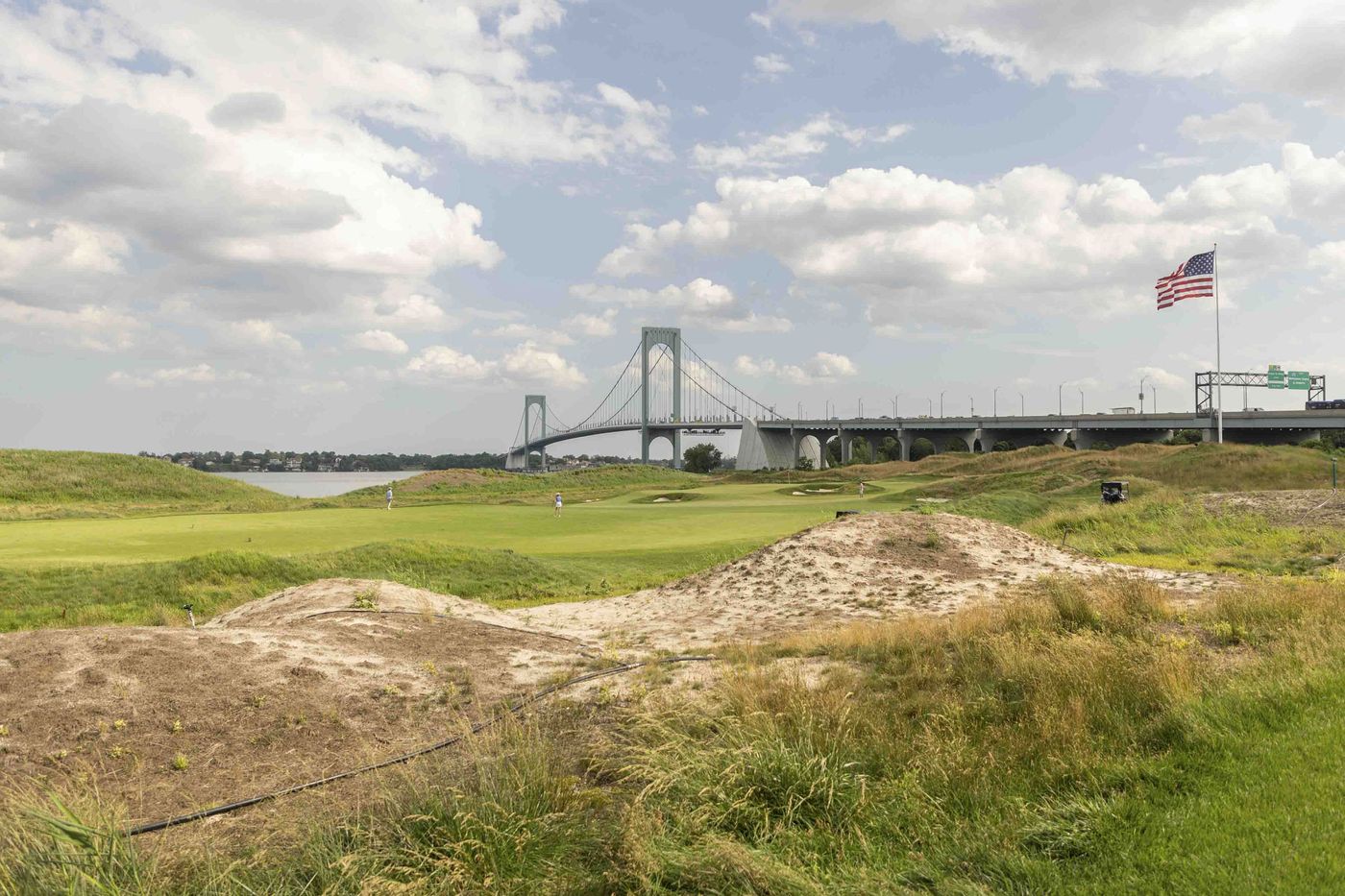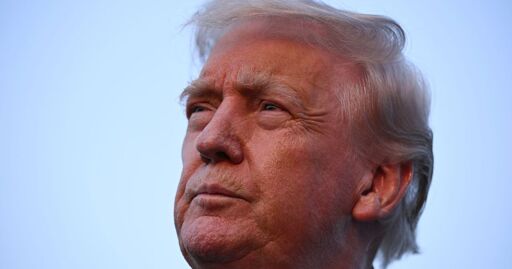 Photo: Brendan Smialowski/AFP/Getty Images
Photo: Brendan Smialowski/AFP/Getty Images
Before he was sent to the Middle East and Russia to negotiate peace, and before he floated the idea of Eric Adams becoming ambassador to Saudi Arabia, Steve Witkoff was on a very different mission involving Donald Trump.
In late 2022, the Trump Organization ran a golf course in the Bronx, and the Bally’s Corporation wanted it to be the site of its next casino. Witkoff helped broker the arrangement: $60 million for Trump’s business up front and $115 million if Bally’s actually won one of the three licenses to operate a casino in the New York City area. “The deal was too good to refuse,” Eric Trump told the New York Post.
It was also a long-shot bet. Eleven bidders, from Jay-Z to Miriam Adelson, were vying for those licenses, which were considered to be worth tens of billions of dollars apiece. Each team would have to clear a “community advisory committee” made up of representatives of local elected officials before a four-person board in Albany picked the ultimate winners by the end of this year.
One by one, most of those bidders dropped out or were blocked by local opposition. Now, after a rescue mission from Mayor Adams, a round of last-second dealmaking, and a must-have approval on Monday from the community advisory committee in the Bronx, Bally’s is indeed a finalist to get one of these lucrative casino deals, and the Trump Organization is set to get a nine-figure payday.
Two other bids, each connected to decrepit horse-racing tracks, also passed their community votes; Mets owner Steve Cohen’s bid for a resort next to Citi Field is expected to do the same on Tuesday. That means four bids for up to three licenses to be awarded by Albany — not bad odds for Bally’s, or for Trump. Rival bidders are worried, as one of them put it to me, that Bally’s may be “completely gift-wrapped and ready to go, that they’re gonna get one of the licenses because of the Trump involvement.”
Ferry Point started as a garbage dump. (“We used to come out here as kids with BB guns and shoot rats,’’ one golfer reminisced.) In 2000, the Giuliani administration had the idea to turn the 222-acre site in the southeastern Bronx into a luxe golf course. Years of wasted money and botched contracts followed. Then the city finally decided to build the course itself — for $127 million. The Trump Organization was tapped to operate the place with a lease that lasted until 2035. The Jack Nicklaus–designed course debuted on April Fools’ Day 2015, with the cost of 18 holes running about triple that of the other city-owned courses. (“Scores of vents jut up from the links to release methane gas,” the Times sniffed on opening day.) The giant “TRUMP LINKS” sign became an impossible-to-miss aspect of a trip over the Whitestone Bridge.
At that point, plans for casinos were popping up all over New York. A law passed under then-Governor Andrew Cuomo allowed for four to be built upstate, followed, after a multiyear pause, by up to three more in and around the city. By December 2022, Bally’s was negotiating with Trump’s team about using a portion of the land for its casino bid. Witkoff, who had previously owned the unfinished Fontainebleau Las Vegas casino, was in on the talks. The final deal was rather generous for the Trumps: Bally’s boss Soo Kim later defended it, saying it was the only way to get that Trump sign removed. “Look, he knew the value of this project to us. He’s not a dummy,” Kim said about the then-former president.
Kim also made arrangements with several of the mayor’s allies, as Politico New York recently noted. Adams’s campaign lawyer, Vito Pitta, became a Bally’s lobbyist. Moonshot Strategies, which raised $7 million in support of Adams during his first run for mayor, signed on to represent Bally’s and other bidders. Same goes for Metropolitan Public Strategies, which also repped Witkoff. Bally’s and the Jay-Z casino team hired the law firm of Frank Carone, the mayor’s former chief of staff, who later participated in rounds of talks with Witkoff to make Adams’s legal troubles disappear.
 Photo: Yuvraj Khanna/Bloomberg/Getty Images
Photo: Yuvraj Khanna/Bloomberg/Getty Images
The case they were all trying to make was a straightforward one. “It’s the fucking Bronx, dude,” as one source close to the project tells me. “And the Bronx, like always, is the stepchild around these big economic-development projects. This would be the single biggest economic-development project in the history of the borough, multiple times bigger than anything the Yankee Stadium was.” The final tally: $4 billion for a 500-room hotel, a 2,000-person event center, and a 500,000-square-foot casino.
Still, the local community board, in a symbolic gauge of sentiment, went 29-5 against the project in March. Because the Bally’s bid was for city parkland, it needed to clear additional hurdles, including a crucial City Council vote to change how the land was used.
There were also questions about whether Bally’s even had the money to build the Bronx casino. In Chicago, a new, temporary casino had brought in just a fraction of the revenue promised to the city, and construction of the permanent replacement has been hit with delays. The company recently announced plans to sell and lease back its Rhode Island property to pay down a debt obligation measured in the billions.
Then Bally’s fortunes started to turn. The lavish, multibillion-dollar resort proposals in Manhattan generated even more serious pushback. Bally’s nearest rival, ten miles away in Yonkers, put in what many observers believed was a minimal, paint-by-numbers bid. Then in April, Bally’s reaped a PR bonanza when it spent $10 million to rescue a nearby high school run by the Sisters of the Divine Compassion that counts Jennifer Lopez as its most famous alum. (The Times headline: “Nuns Sell a Catholic School to a Casino Company to Save It.”)
The most important break came at the end of July when Adams swooped in. The City Council — including the local member, Republican Kristy Marmorato — had voted against the land-use changes the casino needed to move forward. Bally’s bid appeared to be dead. Then Adams brought it back to life: He vetoed the bill, allowing the casino to move forward and preserving the Trump Organization’s chance at another $115 million payday.
The mayor’s mutual acquaintances didn’t influence his decision, all parties involved insist. “Listen, does Vito Pitta work with us? Yeah. Did Frank Carone do work for Bally’s at some point? Of course, yeah. Did it have anything to do with that? Absolutely not,” a second source close to the project says about Adams’s veto. This source notes the mayor is so casino-happy, he has been in favor of all bids throughout the city. If Adams didn’t act, the source adds, all the revenue and jobs associated with the casino would have moved across the county border to Yonkers.
But it’s hard to give Adams the benefit of the doubt when 27 people in his orbit have been indicted on various corruption and campaign-finance charges. And it’s undeniable that Adams owed Trump an enormous debt after his Justice Department made the mayor’s own fraud and bribery case go away. About a month later, word leaked that Trumpworld figures like Witkoff and Adamsworld figures like Carone were discussing administration roles for the mayor in exchange for his dropping out of the upcoming election, partially clearing the field for Trump’s frenemy Cuomo. Perhaps two things can be true at once: Adams is a casino believer, and he knows who kept him out of court.
Bally’s still needed to clear its community advisory committee or else the bid was over, and Marmorato, the local city councilmember, controlled one of the six votes. The Bally’s team went deep into its pockets to try to sway her from a “no” to a “yes.” Bally’s had already promised a $7.5 million annual fund that local pols and charities could use to bankroll the projects of their choosing. Marmorato, whose brother worked as a consultant for a rival casino project, wanted another $10 million on top of that, according to two sources familiar with the matter. (Marmorato did not respond to requests for comment on this article.) They couldn’t reach a deal. But the rest of the committee “caught wind” of the proposal, according to one source, and told Bally’s they all now considered the price to be $10 million higher than before: “That’s what we want. No backsies” is how the second source close to the project characterized the negotiations. Eventually, they settled on a $15 million annual fund, on top of another $17 million in safety and parkland improvements Bally’s had already promised, bringing the total if the company wins to $32 million per year.
It’s a lot. But so are the burdens that even supporters admit come with a new casino: the traffic, the crime, the money that gambling tends to take from the wallets of working people. And as big as this bag of cash is, it’ll take years before it eclipses the $175 million the Trumps will pocket for doing absolutely nothing if they catch one more lucky break.
From Intelligencer - Daily News, Politics, Business, and Tech via this RSS feed

